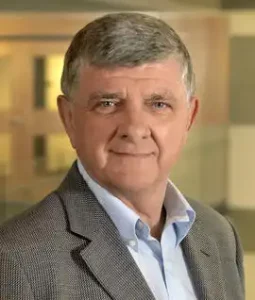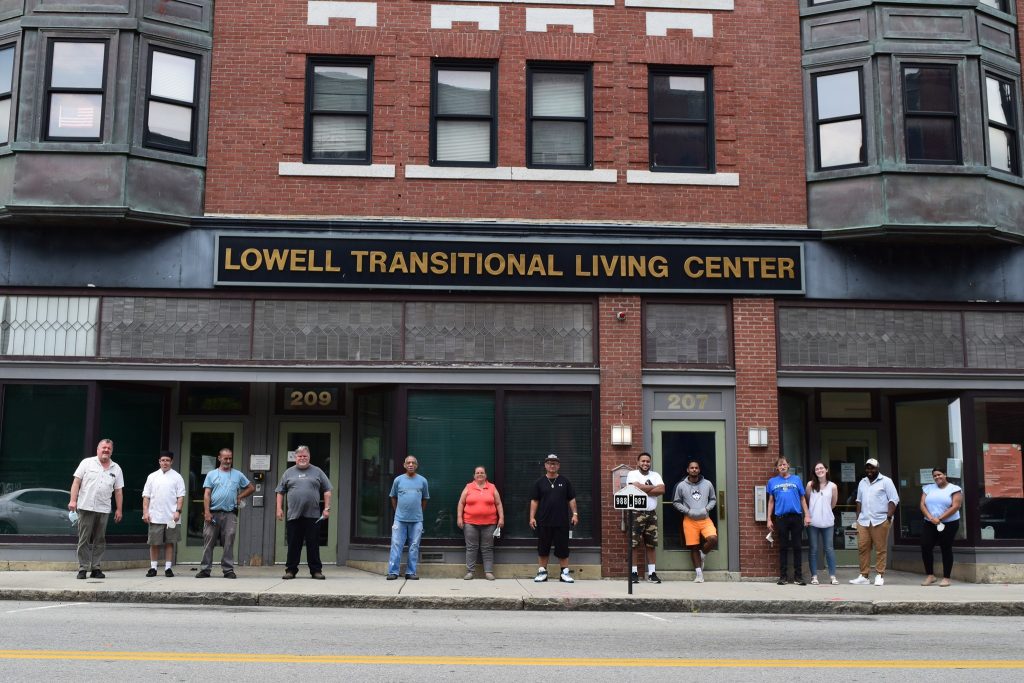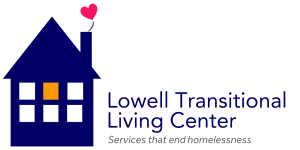Ask Michael Szabados, Chief Operating Officer of NETSCOUT, why the tech industry should care about the homeless in our communities and he doesn’t mince words. “Nobody should feel good about themselves not paying attention to this,” he says.
Szabados, a forty-year industry veteran whose career has taken him from Silicon Valley to Merrimack Valley, has served the Lowell Transitional Living Center (LTLC) as a board member and volunteer for the last ten years. What began as a NETSCOUT corporate community engagement project quickly developed into a personal passion. Szabados now considers his time supporting the LTLC to be some of his greatest, most important work.
The LTLC works with homeless adults from across the Merrimack Valley to provide housing solutions, meals, and connections to community-based resources and support and has done so for over thirty years. Currently, the center needs more volunteers, more capital, and most all, more board members.

Szabados spoke with MassTLC about why supporting the homeless is important for our community and explained how and why both individuals and corporations should get involved.
“You interact with the salt of the earth,” he explains. “I gain a tremendous amount of value sitting with these people, getting to know them, and earning their respect.”
___
Could you introduce yourself? What is your professional role and what is your relationship with the Lowell Transitional Living Center?
My name is Michael Szabados, and I’m a veteran of the computer industry. I’ve been doing this for over forty years, starting in Silicon Valley with Intel and Apple, and now I have been the Chief Operating Officer of NETSCOUT Systems for fifteen years. As an information technology professional, I work with very large enterprises, and communication service providers, the likes of Verizon and AT&T. We also serve the biggest banks and healthcare institutions, the Department of Defense, and the U.S. government in general. We have a service assurance business and a big cybersecurity business. NETSCOUT is a publicly held company listed on Nasdaq.
I first got in touch with the Lowell community about ten years back when I was looking for opportunities to contribute to our local community. I was introduced to the Lowell Transitional Living Center, and they accepted me for the board. Ever since, NETSCOUT has been very active as part of our corporate community service and community contributions in general. We spend a lot of money and energy on various charities, and we work with the Lowell community on multiple fronts, but my personal passion is working with the homeless.
What is the Lowell Transitional Living Center? What about its mission resonates so deeply with you, and why is it such an important organization for you personally?
The Lowell Transitional Living Center is a homeless shelter, and its mission is to support and rehabilitate homeless and move them into permanent housing through a process. The shelter accepts homeless who come in for shelter and food and often from the cold. We assign caseworkers to them and work with them on getting to a point in their lives that they can be placed into a permanent home or housing where we can provide some continued care in some cases.
The shelter is an adult shelter. It’s coed, men and women. In my almost ten years there, I have developed a good understanding of the demography of the people coming in. They come because their families are broken, they lose their jobs, they are sick, they are mentally ill and can’t motivate themselves to get out of bed. In some cases, other misfortunes happen in their lives. For example, broken families and divorces where the weaker party ends up homeless.
It’s a veritable mix of very sad cases, but not all cases are hopeless. In fact, with most of them, we can participate and help them get through the gates towards a better future. We can get very close to these lives. Even the board members, we serve dinner once a month to really stay in touch with them. We call them clients, the homeless.
How many people does the LTLC support? What are some of the trends you have observed over time with how that has changed and continues to change?
Our normal population is maybe 100, 120 people, but it changes and fluctuates. There is a larger crowd outside, who for various reasons decide not to regularly come to the shelter, but in the winter, they come. We have a winter bed protocol, and we put an extra 30 or so beds in.
The number one trend causing homelessness right now is the gentrification of Lowell and the absolute lack of available housing, because there is no land to build affordable housing. City council members don’t want additional affordable housing in their districts. Then, there’s resentment from citizens who are investing hundreds of thousands of dollars to build businesses and make the streets look better. They don’t like the homeless loitering. This is a tough dynamic that the shelter tries to do something about. We try to keep people in and not on the streets through social programs.
The gentrification of Lowell and the surrounding area is definitely not favorable to the homeless, and the homeless issue renews itself. There are always victims on the bottom. They get pushed out of their homes and their families or lose the last job. It may be because they can’t motivate themselves, and they may be depressed.
At the shelter, we have a tremendous amount of empathy. We have a staff of about 35, and they are instrumental in navigating people through the paperwork and more. Some people are capable of improving and just need help. We don’t pick who. We just help.
You mentioned the word empathy. In the tech community, people might read this and think, “This is a sad story, but why does it matter to me?” Why should people in the tech community care about this?
Homelessness to the degree that is prominent in the United States is a failure of society. It’s just not acceptable. These people are vulnerable, they’re not getting regular medical care, and they can die of cold. That’s just not civilized.
Nobody should feel good about themselves not paying attention to this. There are other social ills, but the homeless, you see them day in and day out.
Why should the technology community care? Because we live here and are part of this community. A number of our employees are in Lowell. And it’s not just Lowell, our clients at the shelter come in from the whole Merrimack Valley. Some of our employees have homeless relatives. Many clients are victims of drug use, some may have college degrees.
The technology community, because of its high status in society, is particularly well-to-do and capable of helping other layers of society. We should be carrying a bigger share of dealing with these social ills. We should know better. Our brothers can end up there.
“The technology community, because of its high status in society, is particularly well-to-do and capable of helping other layers of society. We should be carrying a bigger share of dealing with these social ills.”
If someone wants to get involved in supporting the LTLC, as either an organization or an individual, where do you recommend that they start? What do you need most right now and how can people help?
In terms of the long-term perspective, we need to make sure that there is a reliable supply of housing on the far end of the funnel. My vision is to rename the shelter to Lowell Transformational Living Center, so that we can actually help the homeless rebuild their lives, put them through day programs and even college courses or whatever it is that will help them get a better job or a better life on the other end, and certainly to provide access to healthcare.
In order to get this done, though, we need to have a light at the end of the tunnel, which is affordable permanent housing. Now, people have vouchers for housing, but there’s no housing available. That’s number one.
Number two is that we need more people. We need to increase our staff and the level of training, so that we can do a better job in this transformation work. That requires additional payroll expenses, so I’m running the fundraising committee for the board, and we’re trying to address some of these expense issues with fundraising efforts.
The third thing that we need is an improved facility. There is renovation being done, but the kitchen is in shambles, the bathrooms are leaking. We need about $2 million in capital to upgrade the shelter, so it’s more humane, but also so we can be more effective.
Even more important than money, we need more people on our board. When you join our board, you can help us with all of these issues. It’s a high level of participation, but it’s rewarding. Board members play a big role in promoting the shelter and increasing its good reputation. As a board, we jointly work with the local authorities, the city council, and the various volunteer organizations that are part of the ecosystem in the Lowell area. We need more people to join us and serve as ambassadors to build up the perception of the work that happens at the shelter and to eliminate negative ideas about the homeless in the city.
You have been doing this work for many years. What have you personally found most rewarding about volunteering within this community?
You learn about the lives of a part of society that you did not understand before and maybe didn’t even know about. It’s about mingling with different types of people. My life otherwise is full of business executives, and I live and work in a very narrow social realm.
The LTLC board, on the other hand, is very eclectic. People from all walks of life. Contractors, retired people, nurses. You interact with the salt of the earth. I gain a tremendous amount of value sitting with these people, getting to know them, and earning their respect.
Taking on an important cause can make a difference, and that should make you sleep better. It’s an adventure, and at LTLC we have done a lot of major things that were life-altering for clients. Of course, there are crises, and the board finds ways to work with the local community to address them, but really this is life unfiltered. These are real, authentic people. There’s no faking, there is no putting on airs.
What is your vision for the future of the organization?
We have to turn fighting homelessness into a system that’s predictable, an institution. It needs to be a system that has its standards and not just what the AG demands of any 501(c)(3), but more than that. We need to constantly be improving, improving our services. Continuous improvement. Offer more services, more healthcare. Keep working. Make it better. Never stop.
___




